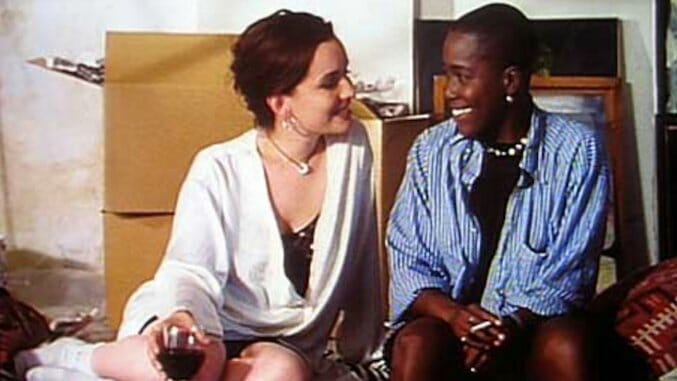Queer Cult Classic The Watermelon Woman Remains as Relevant as Ever
Director Cheryl Dunye's indie film gets a 20th anniversary restoration run

The 20th anniversary restoration run of Cheryl Dunye’s The Watermelon Woman couldn’t come at a more serendipitous time. Sure, the ’90s fashion is glaringly telling of its time, and there’s an unshakable datedness to the fact that the film’s protagonist, Cheryl (played by Dunye herself), works at a video rental store where she spends her days stocking and recommending VHS tapes—but the 1996 indie film, the first feature directed by a black lesbian filmmaker, never feels stale in relevancy. On the contrary, it feels especially relevant now. The film’s newly restored print premiered this Friday, November 11 at New York’s Metrograph, in the same calendar year the #OscarsSoWhite controversy broke out and less than a month after the opening of Barry Jenkins’ Moonlight, a masterwork of queer black cinema, and a week after Jeff Nichols’ Loving, about an interracial couple.
A partly autobiographical effort, Dunye’s film has become part of both queer and POC canon. Not only is it written and directed by a gay black woman, but it puts a gay black woman at the forefront as the main character, something rarely seen in film or TV. It’s such a seminal entry in LGBTQ cinema that Dunye says many people tell her they use The Watermelon Woman as a vehicle to come out to their families.
Dunye opened the doors back in 1996, but they’ve largely remained shut since then. Examples of representation in TV (Orange is the New Black, Lena Waithe on Master of None) are few and far between—try to name a recent example of a black queer woman being the lead on a film, and you’ll feel stumped. That’s why the commentary around The Watermelon Woman, even in 2016, feels so significant. “Think about this year in black film,” Dunye says. “It’s so interesting to see how evolved the consciousness about black people in the media has become. One film can’t hold all the stuff about black identity. You just don’t see black queer women in the media. It took until 2011 for another spotlight, on Dee Rees [Pariah], since The Watermelon Woman. That’s a long time. We just don’t see her, except in a beaten, downtrodden or spoofed way. I’m still hopeful and working.”
-

-

-

-

-

-

-

-

-

-

-

-

-

-

-

-

-

-

-

-

-

-

-

-

-

-

-

-

-

-

-

-

-

-

-

-

-

-

-

-








































